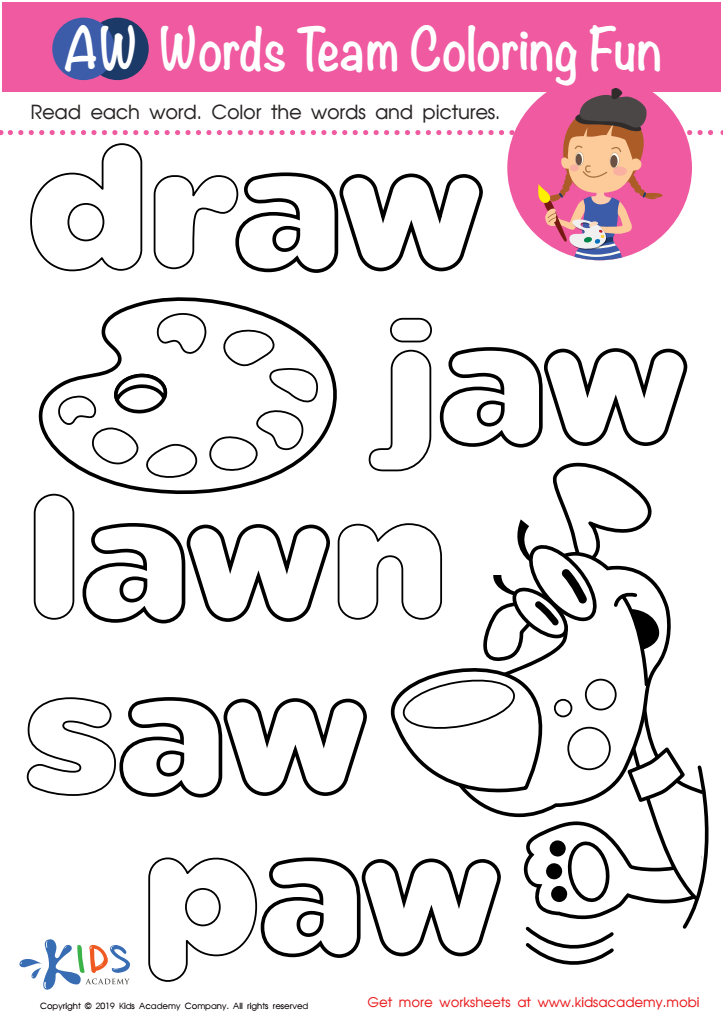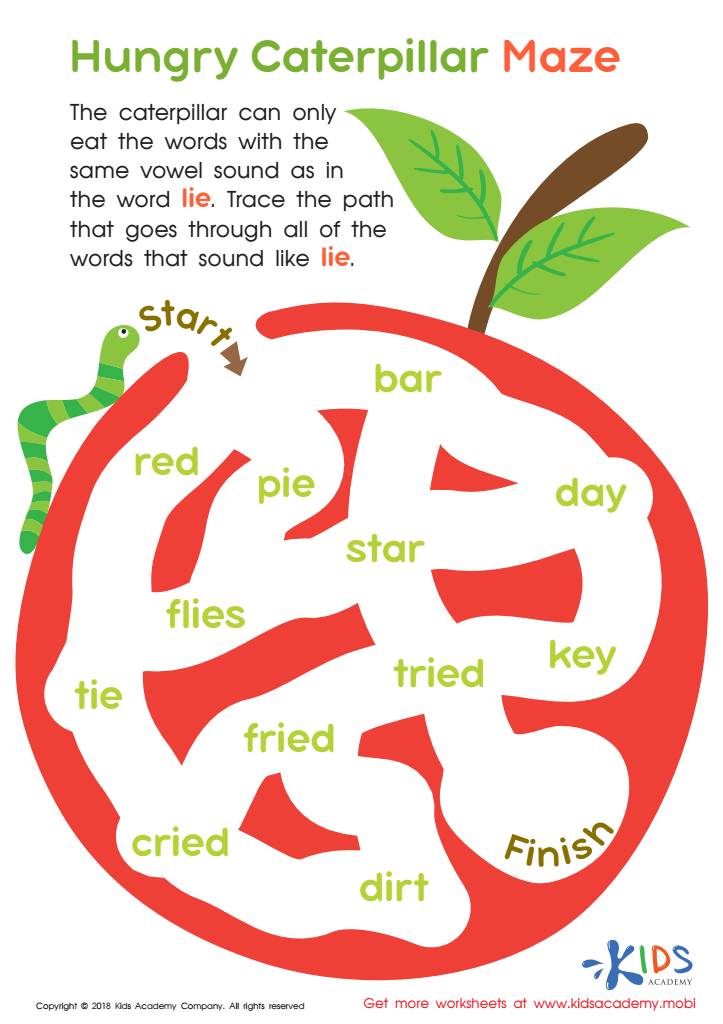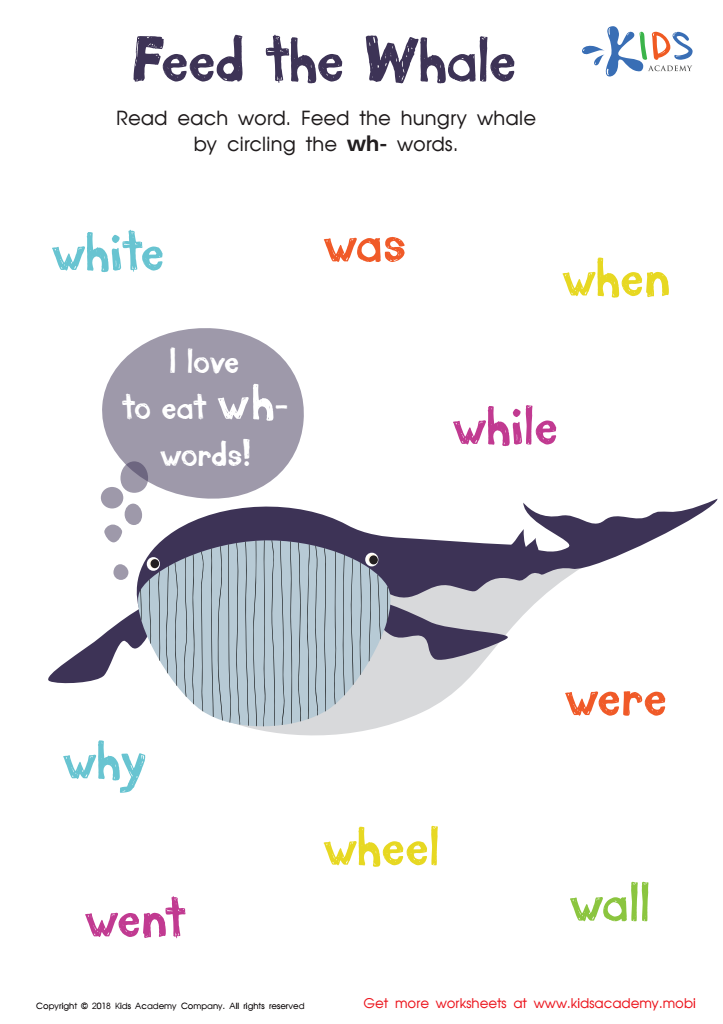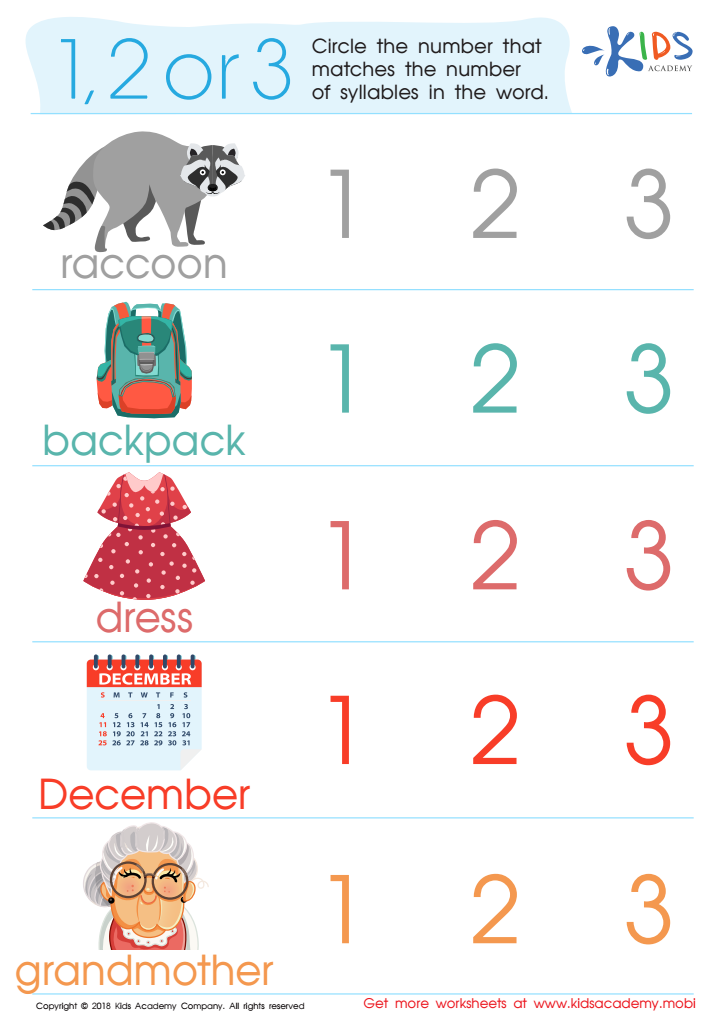Fine Motor Skills Normal Phonics Worksheets for Ages 7-8
5 filtered results
-
From - To
Enhance your child's fine motor skills while mastering phonics with our engaging worksheets designed specifically for ages 7-8! Our collection offers fun activities that combine learning letters and sounds with the development of hand coordination and control. Each printable worksheet features colorful illustrations and interactive tasks that inspire curiosity and creativity. As children trace, match, and manipulate cut-out letters, they will not only reinforce their phonics knowledge but also gain confidence in their writing abilities. Perfect for at-home learning or classroom use, our worksheets provide a balanced approach to phonics education, ensuring your child thrives educationally and developmentally. Discover the joy of learning today!


AW Words Team Coloring Fun Worksheet


Long and Short U Worksheet


Hungry Caterpillar Maze Worksheet


Feed the Whale Worksheet


1, 2 or 3? Worksheet
Fine motor skills are essential for children aged 7-8 as they directly impact their ability to perform daily tasks and academic activities. At this developmental stage, students hone skills such as writing, drawing, and manipulating objects, all of which require dexterity and coordination. Children with well-developed fine motor skills are more capable in their schoolwork, especially in areas that involve handwriting and craft activities, leading to increased confidence and a positive learning experience.
Phonics, on the other hand, is crucial for literacy development. As children learn to decode words, a strong foundation in phonics helps them in both reading fluency and comprehension. When they understand the relationship between letters and sounds, they can tackle unfamiliar words and express their ideas more effectively in writing.
Combining fine motor skills and phonics instruction can enhance learning experiences. Engaging activities that utilize fine motor practice, such as letter tracing or crafting words with playdough, can reinforce phonetic principles in an enjoyable way.
Parents and teachers should prioritize these skills as they lay the groundwork for productive learning and promote continued academic success. Supporting children in mastering fine motor skills and phonics fosters essential independence and a desire to explore the world through reading and writing.

 Assign to My Students
Assign to My Students




















